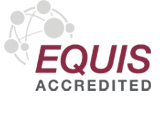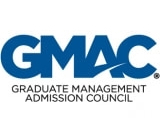The Graduate Certificate in Healthcare Management (GCHM) is a 15-credit graduate program that is delivered in a synchronous learning format, with all 4 modules delivered live and online. This program spans 8 months and includes a Capstone project on which students work from the beginning under the guidance of a mentor/advisor.
Program Dates for 2026
All modules and workshops are synchronous (live) online. Attendance is mandatory - students must attend all modules and workshops live, in their entirety. Sessions are NOT recorded.
|
MODULES |
WORKSHOPS (10:00AM – 12:00PM EST/EDT) |
|---|---|
|
Module 1 |
Workshop 1 |
|
Module 2 |
Workshop 2 Tuesday, April 28, 2026 |
|
Module 3 |
Workshop 3 Tuesday, July 7, 2026 |
|
Module 4 |
GCHM Current Program Modules
| Module 1 |
Module 2 |
Module 3 |
Module 4 |
|---|---|---|---|
|
Introduction to Program |
Financial Management | Financial Management | Healthcare Leadership |
|
Operations Management |
Operations Management | Negotiations | Leading and Managing People |
|
Quality Improvement |
Healthcare Leadership (LEADS) | Healthcare Leadership (LEADS) | |
| Capstone/Practicum | |||
Course Information (15 credits)
Financial Management in Healthcare
The managerial decision-making processes at the hospitals and other health care institutions are increasingly dependent on unprecedented levels of quantitative and qualitative information. This course introduces the basics of cost-based decision-making including capital budgeting and the writing of business cases. Additionally, we explore financial statement use and analysis from the perspective of the user of such financial information.
Operations Management in Health Services
Changes in the environment of health care delivery have renewed the importance of operational aspects of management in health care organizations. This course aims to provide techniques that can be utilized to improve the performance of healthcare delivery systems. We explore operations management theories and frameworks for use and to become familiar with common processes such as patient flow and process mapping. Finally, the course will introduce Lean Six Sigma in health care as well as the application of the theory of constraints. A session on 'AI for Healthcare' is also introduced in this course, including topics such as data analytics, fairness and ethics of AI, its potential benefits and potential challenges.
Quality Improvement in Healthcare
It is broadly recognized that incorporating quality management and improvement in a healthcare organization can enhance the operational processes, increase patients’ safety, and improve the health outcomes. The goal of this course is to introduce the fundamentals of quality management and improvement (QI), methods and techniques for measuring and evaluating quality measures, and basic QI tools to students working in any aspect of health care or in health services research. An emphasis is on application to practice in real time through the team work in the EPIQ (Evidence-based Practice for Improving Quality) portion of the course.
Leading and Managing People in Healthcare
Engaging people to co-create solutions and respecting their wisdom and autonomy is really important in how we manage a health care setting. Canada documented zero reductions in mortality attributable to the implementation of required checklists. Why do we need checklists? And why does checklist effectiveness depend upon the level of staff engagement during their implementation? Answering these questions requires an understanding of human decision-making, motivation, the social dynamics of individuals and teams, and the process of leading and managing change people. In this course you will understand better the organization in which you work by exploring individual behaviors, the cultural roots of those behaviors, and the underlying forces of collective behavior.
Managerial Negotiations in Healthcare
You continually negotiate your way through life although you don’t recognize that you are doing so. Anytime two or more interdependent parties want to exchange anything and have different, unknown, and potentially conflicting interests, they must negotiate about the terms of that exchange. In this course, we will examine the fundamentals of negotiation and dispute resolution in order to understand better the dynamics that lead to successful negotiation outcomes. You will learn both the theory and processes of negotiation so that you can negotiate successfully in a health care setting, as well as a variety of other settings.
Healthcare Leadership
Responding to the challenges and yearnings of the 21st century demands anticipatory creativity. Confronted with our current economic and societal reality, we cannot help but appreciate Einstein’s prescient observation that “We cannot solve problems by using the same kinds of thinking we used when we created them.” Designing leadership options worthy of implementation calls for levels of inspiration, creativity, and a passionate commitment to beauty that, until recently, have been more the province of artists and artistic processes than the domain of most managers. The time is right for the exploration of different ways for each of us to co-create the leadership you wish to have in your work environment.
Healthcare Management Practicum/Capstone Project
The Capstone provides students with an opportunity to apply directly, in real time, their conceptual, analytical, research, and practical management knowledge and skills gained throughout the program. It is a closely supervised experience resulting in a presentation and a paper that demonstrate the ability to synthesize and utilize the skills and knowledge gained in the program. Through the Capstone, the following topics will be covered:
- Preparation of a proposal from problem statement to methodology.
- Implementation of the methodology, including sample selection, collecting data, and completing an appropriate data analysis, if appropriate for the project.
- Drawing data-based conclusions and recommendations that address the problem statement.
- Presenting and defending the Capstone process, including findings, and recommendations.
Capstone Project
What is a Capstone? A unique experiential learning opportunity, tackling a real healthcare management challenge under the guidance of an advisor.
Choose an area you would like to change or improve in your workplace:
- Integrate the learning in the program
- Reflect on opportunities to effect change
- Examine barriers
- Develop two formal briefing notes to scope out your ideas
- Work with your mentor/advisor for guidance on this program
- Complete a paper and a brief presentation during the final module of the program






